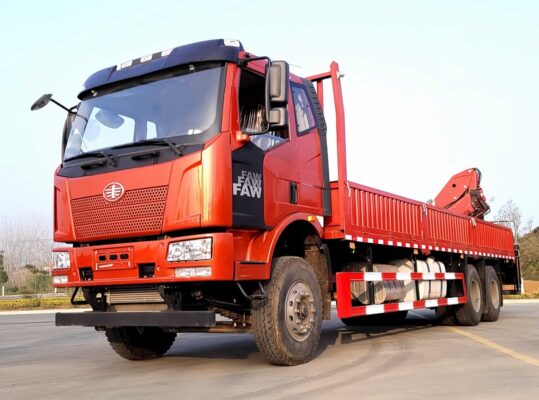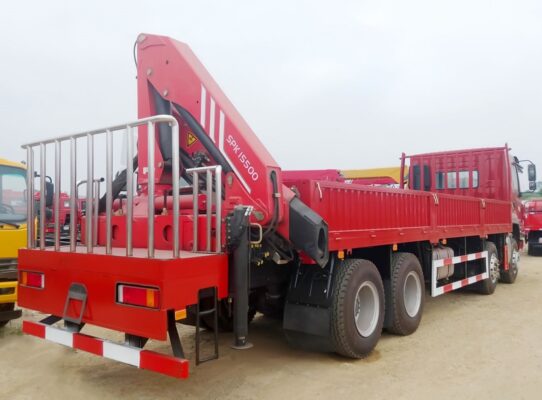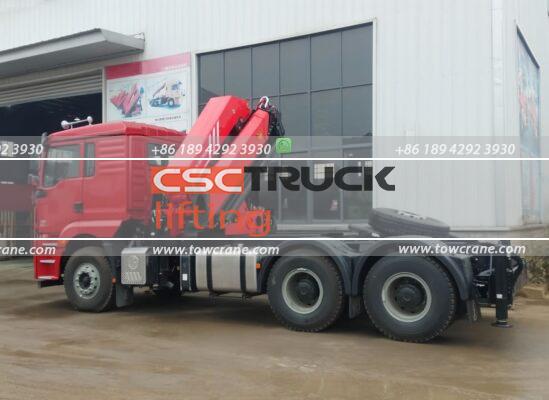Recently, many customers have been inquiring about tow trucks. The questions are generally quite similar, so today, I will provide explanations and answers to some common questions about tow trucks. I hope this article will clear up any confusion you might have.
Question 1: How much weight can a tow truck’s flatbed usually carry?
Answer: A tow truck‘s flatbed generally has a carrying capacity of 3-4 tons. Although it is designed to carry around 3 tons, it can handle up to 4 tons in practice.
Question 2: How much can the rear lift of a tow truck support when fully extended?
Answer: The maximum lift capacity of a tow truck is a critical parameter for assessing its operational performance. When the rear lift is fully extended, it can generally support 1.68 tons, with a maximum lifting capacity of up to 1.8 tons.

Question 3: What is the top speed of a tow truck?
Answer: Tow trucks use diesel engines and can reach a top speed of 108 km/h.
Question 4: What are the common engine types used in tow trucks?
Answer: Most tow trucks compliant with China’s National IV emission standards use Chaoyang Chaochai engines, although other engine types are available based on customer requirements.
Question 5: Can tow trucks operate on rugged mountain roads?
Answer: Tow trucks are primarily used for clearing road obstacles, often in cooperation with traffic police, for road emergency rescue, or by 4S dealerships. It is not recommended to use them on rugged mountain roads due to their design and operational constraints.
Question 6: Why is there a significant price difference between our tow trucks and those from Yuehai?
Answer: Our company, Special Vehicles Network, engages in bulk sales. We obtain chassis at much lower prices than Yuehai, allowing us to offer more competitive prices without compromising on quality.
Question 7: Does Special Vehicles Network have tow truck sales points nationwide?
Answer: Our tow trucks are manufactured in Suizhou, Hubei. We do not have other sales points across the country. Local dealers selling tow trucks are licensed distributors, often with higher prices.

Question 8: How should after-sales issues with tow trucks be resolved?
Answer: For any chassis-related problems, there are nationwide after-sales service points, and the chassis comes with a one-year nationwide warranty. For issues with the upper structure, we offer a one-year or 30,000 km free after-sales service. For minor component issues, customers can send photos, and we can mail the necessary parts for replacement. If customers cannot resolve the issue, our team will provide on-site repairs within 48 hours to ensure the normal operation of the vehicle.
Question 9: What are the main uses of large tow trucks?
Answer: Large tow trucks are mainly used for emergency rescue and removal of accidents on highways and for towing large vehicles. They play a crucial role in keeping major roadways clear and ensuring traffic flows smoothly.
Additional Insights
Question 10: How often should tow trucks be maintained?
Answer: Regular maintenance is crucial for the longevity and performance of tow trucks. It is recommended to follow the manufacturer’s maintenance schedule, typically every 5,000 to 10,000 kilometers. Regular checks should include the engine, brakes, hydraulic systems, and structural integrity.

Question 11: What safety features are standard on modern tow trucks?
Answer: Modern tow trucks come equipped with various safety features, including anti-lock braking systems (ABS), traction control, stability control, and rear-view cameras. Some models also offer advanced features like lane departure warnings and collision mitigation systems to enhance driver safety.
Question 12: Can tow trucks be customized for specific needs?
Answer: Yes, tow trucks can be customized to meet specific needs. Customization options include different bed lengths, winch capacities, lighting configurations, and additional storage compartments. Customers can work with manufacturers to tailor the tow truck to their specific operational requirements.
Question 13: What training is required to operate a tow truck?
Answer: Operating a tow truck requires specialized training. Drivers must be familiar with the vehicle’s controls, safety procedures, and towing techniques. Many regions require a commercial driver’s license (CDL) and specific endorsements for towing operations. Ongoing training and certification are also recommended to stay updated with industry standards and regulations.
Understanding these aspects can help customers make informed decisions when purchasing and operating tow trucks, ensuring they choose the right vehicle for their needs and maintain it properly for optimal performance.









